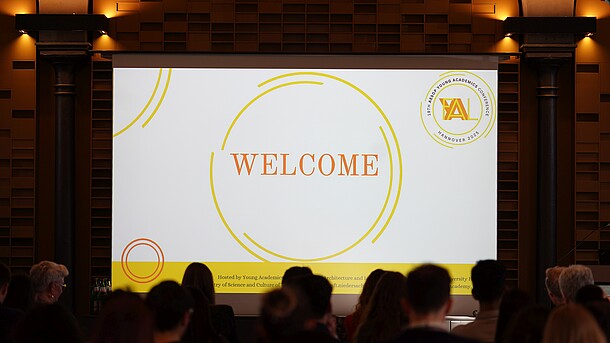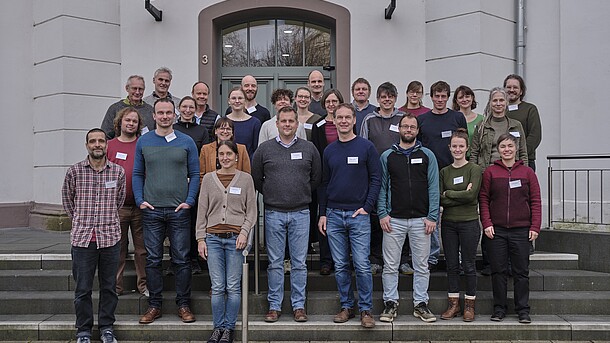Assessment of impacts of dendromass cultivation on landscape experience and recreation

| Led by: | Prof. Dr. Christina von Haaren, Prof. Dr. Michael Rode |
| Team: | Dipl.-Ing. Thiemen Boll |
| Year: | 2014 |
| Funding: | Federal Ministry of Education and Research (BMBF), as a subproject of the joint project AGROFORNET (coordination TU Dresden) |
| Duration: | October 2010 - September 2014 |
| Is Finished: | yes |
Integration of solutions in landscape planning and overall spatial planning, sub-project in the joint project AGROFORNET
Summary
The aim of the sub-project is to further develop existing assessment methods for the scenery and the recreational function for the application area dendromass, to apply them on different scale levels (enterprise, landscape, region) and to prepare them for participation. The reactions, opinions and interests of citizens and tourism stakeholders will complement a user-independent assessment and be integrated into a dendromass cultivation concept. Differences between attitudes and evaluations by the urban population on the one hand and the rural population on the other hand will be recorded and taken into account. Based on this, concepts for the planning and instrumental implementation of sustainable dendromass cultivation will be developed.
Background and objectives of the project
In various regions of Germany, there has been a strong expansion of corn cultivation in recent years, which is increasingly viewed negatively in public opinion and leads to conflicts, especially in areas that are heavily used for tourism. One of the main conflicts arises from the change in scenery and its impact on recreational use. Changes in the landscape due to the establishment of short rotation coppice can also have significant impacts, evaluated positively or negatively, on the quality of experience of the landscape. The 'southern metropolitan region of Hamburg' was selected for the investigations within the framework of AgroForNet. Areas potentially affected by an expansion of dendromass cultivation, which at the same time have a high importance for recreational use, are here the Lüneburg Heath, but also e.g. the Harburg Mountains or the Elbmarsch. Due to their scenic beauty, they play an important role as recreational areas for Hamburg's population. Supplementary investigations are taking place in the two other AgroForNet model regions 'Lausitz' and 'Mittelsächsisches Lösshügelland'.
Possible land use conflicts based on a change in the landscape character of the agricultural landscape are to be given special consideration in the Hamburg model region and investigated in advance with regard to the establishment of short-rotation coppices. In this context, the aesthetic preferences of the population with regard to different scenarios of the cultivation of short-rotation coppices will be empirically determined in surveys. For the surveys, visualizations will be created that illustrate possible landscape changes and highlight differences between different cultivation scenarios. The aim is to develop a method for recording and evaluating the effects of dendromass cultivation on the scenery and the recreational function of the landscape. The assessment method is to be integrated into the MANUELA software developed at the Institute of Environmental Planning to enable automated, user-independent assessments. Based on these assessments, sustainable cultivation concepts will be developed that can be integrated into landscape planning and overall spatial planning.
Overall project AgroForNet
The overall objective of the joint research project AgroForNet is to establish regional value-added networks for the sustainable and efficient production, provision and utilization of dendromass from forests, short-rotation coppices and the open landscape in the three model regions 'Lausitz', 'Mittelsächsisches Lößhügelland' and 'Southern Hamburg Metropolitan Region', which will continue to operate economically after the project period and serve as examples for other regions in the Federal Republic of Germany.
The joint project AgroForNet is part of the funding program ‚Sustainable Land Management' of the BMBF and is coordinated by the TU Dresden.
Publications
Boll, Thiemen; Haaren, Christina v. & Albert, Christian (2014): How do urban dwellers react to potential landscape changes in recreation areas? – a case study with particular focus on the introduction of dendromass in the Hamburg Metropolitan Region. In: IFOREST. RegioResources21: Spatial information and participation of socio-ecological systems: experiences, tools and lessons learned for land-use planning 7, 324-433.
Boll, Thiemen, & Haaren Christina v. (2014): Wie sensibel reagiert die Stadtbevölkerung auf die Veränderung ihrer Erholungslandschaft. In: Naturschutz und Landschaftsplanung 46 (5): 137-144.
Lepies, Jennifer; Boll, Thiemen (2014): Wenn es auf dem Acker grünt. In: Business Geomatics 14 (5/6): 18.
Boll, Thiemen; Haaren, Christina v. & Rode, Michael (2015): The effects of short rotation coppice on the visual landscape. In: Bemmann, A., Butler-Manning, D., Bredemeier, M., Lamersdorf, N., Ammer, C. (Eds.): Bioenergy from dendromass for the sustainable development of rural areas. Wiley-VCH, Weinheim, 105-119.





